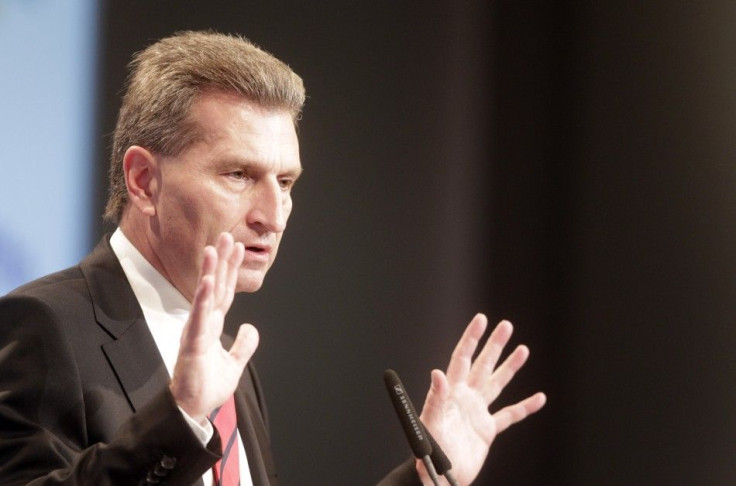EU seeks to reduce dependence on Russian natural gas; seeks out deals with Central Asian nations

The European Union’s (EU) energy commissioner has said that the EU’s new partnerships with Central Asian nations do not pose a threat to Russia’s gas sales to Europe.
Russia currently provides about 25 percent of the EU’s gas needs, while seven countries of the 27-nation bloc are almost completely dependent on Russian gas.
At the core of the issue is the South Stream project, a plan whereby Russia will provide gas to the Balkans, Hungary and Italy through a new pipeline that will traverse the Black Sea into the continent. However, another pipeline, the Nabucco (which has not been constructed yet) will also transport gas to Europe – via Turkey.
Indeed, last month Azerbaijan said it would export gas to Europe through this Turkish conduit.
Azerbaijan envisions pumping gas into Nabucco from its Shah Deniz II field in the Caspian Sea. The 2,046-mile pipeline is forecast to deliver up to 31-billion cubic meters of gas every year. Another energy-rich central Asian country, Turkmenistan will also participate.
Thus, South Stream and Nabucco are widely viewed as potential competitors in the European gas market.
Nabucco is part of a grander plan to establish a new so-called “Southern Corridor” by which gas from other Central Asian regions, and even northern Iraq, might one day be funneled to Europe.
All these measures point to one incontrovertible fact – the EU seeks to reduce its dependence on Russian natural gas imports.
Pricing disputes over gas with various former Soviet Republics presents thorny problems for European consumers. For example, a dispute in January 2009 created a significant energy shortage in several EU countries.
However, establishing gas contracts with central Asian governments, most of which are totalitarian with poor records on observing human rights, may raise uncomfortable questions for Western European democracies.
Jos Boonstra, senior researcher at Madrid-based think-tank FRIDE, was quoted as saying: The EU has a big interest in Turkmenistan's gas, though there are a number of problems including the question of how the gas could be transported to Europe - whether it is through Nabucco or across the Caspian to Baku - in addition to Turkmenistan's human rights record and complete lack of any form of democracy, and a lack of understanding on the part of the Turkmen president and government of how the EU actually works.
© Copyright IBTimes 2024. All rights reserved.











